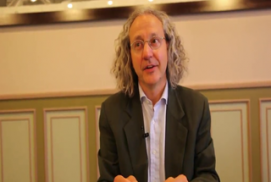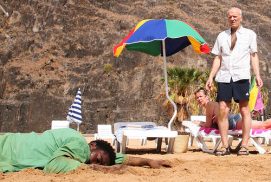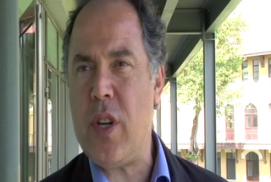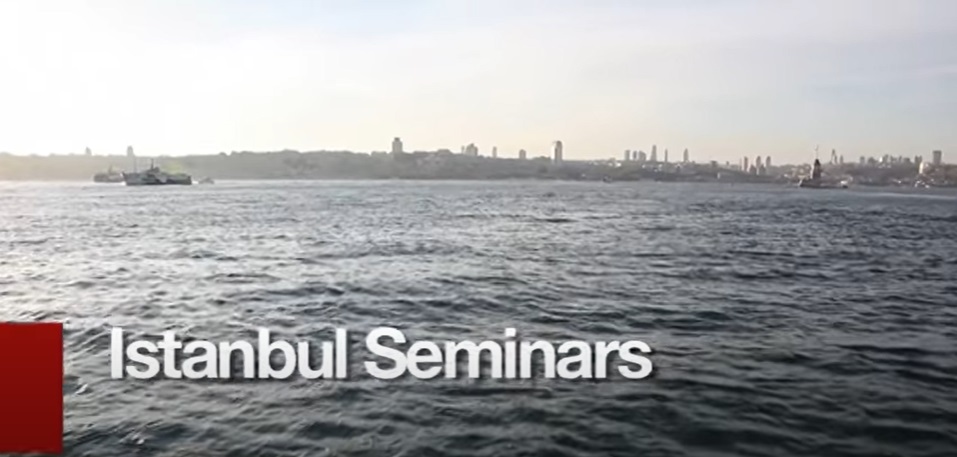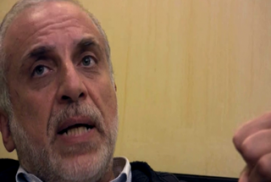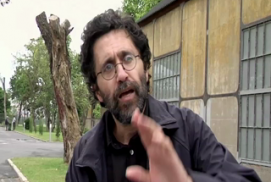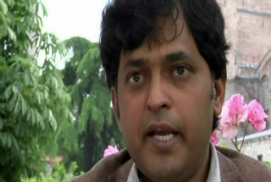
Videos

- 8 May 2012Resentment and reciprocal fear seem to be increasing in Europe in response to the economic and demographic crisis, and to minorities – often identified with the Muslim “other” – demanding more public visibility. Nevertheless, if we want true integration for minorities, we need to acknowledge this often extreme conflict as a phase, but a necessary phase, of an integration process, says Italian Sociologist Stefano Allievi, interviewed during the 2011 edition of ResetDoC’s Istanbul Seminars. In conflict you deal with other actors, which are actors who change their minds through conflict. Conflict is socially dynamic, not static, and we must deal with it step by step.
- 13 March 2012“If a state claims to be Islamic and imposes a particular view of Islam, it is denying my freedom to disagree. And that is why we need a secular state”, says Abdullahi An-Na’im, a leading scholar of law and Islamic jurisprudence. Resetdoc interviewed him during the 2011 edition of our Istanbul Seminars.“Shari’a is a human endeavor to understand the divine, but it remains human, and every believer is accountable for her or his understanding,” explains Dr. An-Na’im. “Hence, any honest Muslim needs human rights: freedom of belief, freedom of association, freedom from oppression, the right to debate, to contest and to dissent. Since every Muslim is only supposing or guessing, none has a superior claim to the truth of what Shari’a is.”In fact, “in the intellectual Islamic tradition Shari’a was understood as zanni, i.e. suppositional. This is a good state of being,” says the Sudanese-American philosopher, “because certitude would inevitably tend to authoritarianism, oppression and domination of others because ‘you’ have the truth as Got revealed it. And logically, the possibility of being a Muslim, the possibility of belief requires the possibility of disbelief : if I am not free to believe, there is no value do my belief. For this reason, creating conditions in which I keep the freedom to believe or not to believe is critical to the possibility of being a Muslim. I need the state to be secular so I can be the Muslim I choose to be by conviction.”
- 11 January 2012
- Fuat Keyman 23 December 2011The EU-Turkey integration process and the EU institutions have opened up spaces to empower people, particularly Kurds, to fight for their rights and freedom within their own country. So behind the state-state relationship we see the importance of the EU integration process for third party countries. But how does this process affect the Kurdish, or “multicultural” issue in Turkey? And how will it be possible to recover the relationship between Turkey and the EU? Resetdoc has asked Fuat Keyman, a leading Turkish political scientist and Director of Istanbul Policy Center, Sabanci University.
- 22 November 2011Over the long history of our species, human beings have developed complex forms of identity, which make it possible to live together, says Ghanaian-British philosopher Kwame Anthony Appiah , chosen by Le Nouvel Observateur as one of the 25 most important thinkers of our time. Identities change, but they are not replaced with nothing: they are replaced with changed identities. The modern economic environment requires us to live together, so we have to develop forms of identity that draw on the narratives from the past, that draw on traditional identities. But, we have to be imaginative about drawing on the past, about imagining the bits of the past that are useful to us. Identities and cultures are in constant flux, and we must draw on narratives from the past to create the common identities of the future. We interviewed Kwame Anthony Appiah during our Istanbul Seminars 2011. Watch the second part of this interview: “Culture Crosses Boundaries”
- 15 November 2011
- 11 October 2011TURKEY – What consequences will there be for the country’s political and social situation following the resignation of Turkey’s chief of staff and highest-ranking military officers? According to Soli Özel, a political analyst and professor of international relations at the Bilgi University and Kadir Has University in Istanbul, these resignations are the culmination of a demilitarization process in Turkish politics that has lasted for almost ten years. Erdoğan’s Justice and Development Party seems to have managed to overturn – to the advantage of civilian authorities – the previously unshakable power of the Turkish military in politics, mostly in the name of defending secularism. Even when faced with the Arab Spring and the Israeli-Palestinian conflict, the Turkish government has assumed advantageous positions, even recently defending state secularism. Soli Özel analyzes the new Turkey and its international relations, from Syria to Libya to the United States, identifying Turkey’s strategies and objectives as it furthers its new and already decisive political global role.Soli Özel was interviewed by Giancarlo Bosetti in Rome on September 12th, 2011.Read the full interview here
- 30 September 2011Many women were in the front lines of protests during the Arab spring, says the feminist Nouzha Guessus, co-promotor of the Mudawana, the new progressive Moroccan family law. Moroccan women have fought against authoritarianism and lack of freedom, for democracy and to improve the economic situation, but now they are afraid that the right to an equal treatment and the right to be citizens will be once again forgotten. Nouzha Guessous speaks to Resetdoc during the Istanbul Seminars 2011.
- 16 September 2011The debate about immigration started just after the oil crisis of 1973. It was the end of the years of prosperity in Europe, prosperity that was brought by an enormous influx of migrant labor. Once the oil crisis was set, suddenly immigration became a problem. Twenty years later, immigration has started to be conflated with Islam, and the real “problem” has now become Islam. Why? And where are our responsibilities? During the Istanbul Seminars 2010, we have interviewed Gil Anidjar from Columbia University.
- 28 July 2011Feminist efforts made by a younger generation of educated, modern Muslim women pass in particular through the re-appropriation and re-interpretation of the Qur’an and the prophetic traditions, says the Indian sociologist Irfan Ahmad. He has studied the evolution of the discourse about women within the Indian neo-fundamentalist movement Jamaat-e-Islami. He has spoken to Resetdoc during the Istanbul Seminars 2010.


